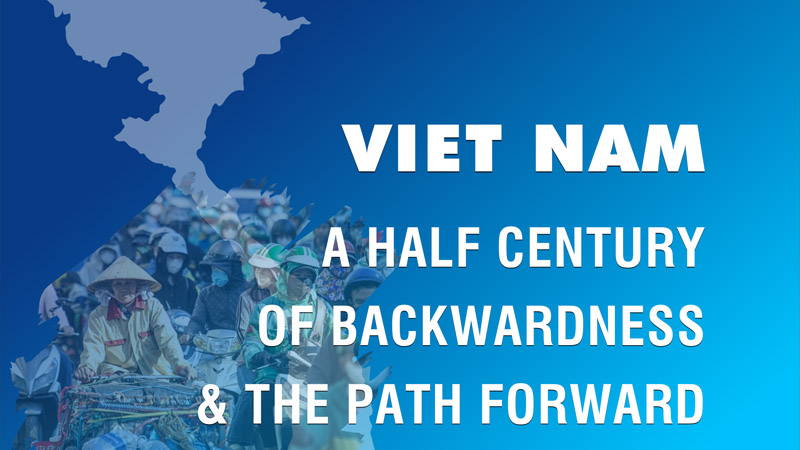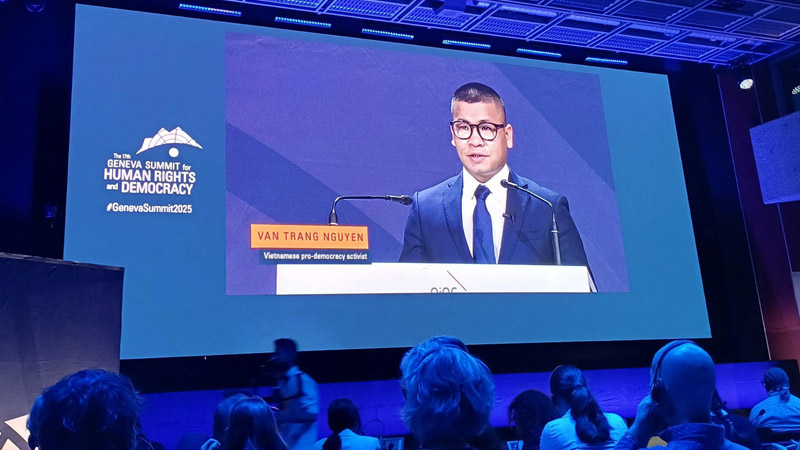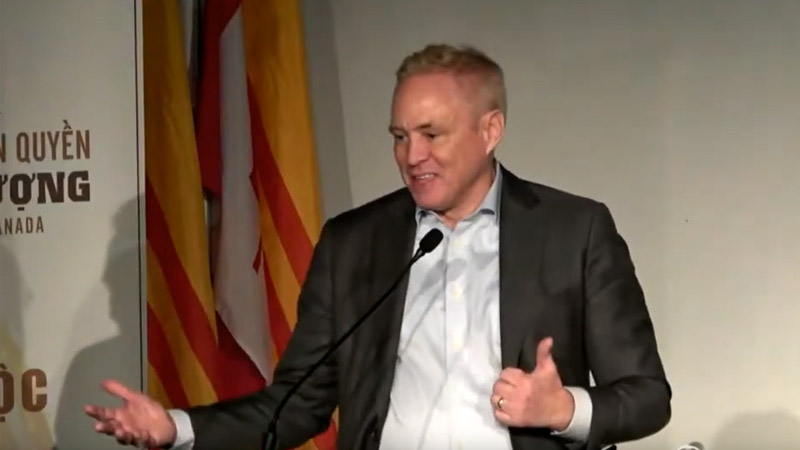On March 12th, a coalition of 9 international human rights organizations sent out an open letter to Vietnamese Prime Minister Nguyen Tan Dung and called on the Vietnamese government to immediately release five Catholic bloggers: Dang Xuan Dieu, Ho Duc Hoa, Nguyen Van Duyet, Nong Hung Anh and Paulus Le Son.
Trinity Hong-Thuan from Radio New Horizon (Radio Chan Troi Moi) interviewed Brett Solomon, co-founder and Executive Director of Access, one of the nine organizations represented.
March 22, 2012
Trinity Hong-Thuan: Recently, Access, together with eight other human rights organizations, sent out an open letter to the Vietnamese Government calling for the immediate release of five Vietnamese bloggers. Can you give us a brief summary of what this letter is about?
Brett Solomon: Sure. We have come together to send a letter to the Vietnamese Prime Minister and draw attention to the detention of five bloggers and human rights defenders, including Paulus Le Van Son, and calling for those bloggers and human rights defenders to be released from detention. As you may be aware they’ve been detained for more than six months and held incommunicado. There has been no legal representation and only one of those detained has been granted visitation right. There has been a huge concern for their safety, health and also for the fact that they’ve been detained under the Article 79 of the (Vietnamese) Penal Code.
Trinity Hong-Thuan: You just mentioned Article 79 of the Vietnamese Penal Code, which outlines penalties for activities aiming at overthrowing the government. We know that many dissidents in VN, particularly the five bloggers we just talked about, were arrested under this article. How do you see Article 79 as a hindrance to freedom of expression in Vietnam?
Brett Solomon: Clearly Article 79, together with Article 88, have been used by the Government to deny basic rights. It’s such an extraordinary broad provision. When you look at the wording of it – “overthrowing the People’s Administration” – it’s clear that these Articles have been used on such a large range of activities, many of which relate to the denial of the freedom of expression. If you look at the consequences of an infringement of Article 79, you can see that it does allow for the death penalty. When you have such egregious penalties under the code it creates a culture of fear. People in Vietnam are fearful of activities that the code covers.
There has been, over this short period, a resolution from the US Congress – House Resolution 484. It basically calls on the Vietnamese Government to repeal Article 79. It’s a very interesting development, actually.
Trinity Hong-Thuan: I’m glad you mentioned House Resolution 484. I know that the Vietnamese community in America is trying to push for it to be passed in the House right now. On a side note, how did your organization and others know about the arbitrary detention of these bloggers?
Brett Solomon: It’s certainly well known that the Vietnamese Government has been cracking down on bloggers, activists, and human rights defenders. In fact, this group of five is really part of a larger group of seventeen. Some of the other human rights organizations who are signatories to the letter alerted us to these particular cases. Of course, there was significant amount of research and due diligence that was done. And then together we decided to release the letter to the Vietnamese Government.
Trinity Hong-Thuan: And just one last question. As a daily radio broadcast to Vietnam, we have many listeners in Vietnam and all around the world who wants to participate in advocating for the freedom of information, and the freedom to build a civil society in Vietnam, do you have any suggestions for them?
Brett Solomon: One of the very interesting new development, of course, is the role of new technologies and how organizations like accessnow.org — which people can look up online — is really focused on the role that new technologies play in enabling people to exercise and enjoy their rights.
We see around the world that technology is really an incredible powerful force against authoritarian states because governments may be able to control the media sources but it’s very difficult [to control] when you have hundreds of thousands, millions who are connected by the Internet, smart phones, if they have access to them, and Internet cafes. New technologies provide a lot of promise, opportunities and hope for people whose freedom of expression has been limited.
I think it’s an extremely exciting time. Obviously we’re looking for the repeal of the two articles that I mentioned — Article 79 & 88. Hopefully with perseverance and bravery, we’ll eventually see Vietnam opening up, leading to people to speak freely and be able to assert their rights and their own political views.
Trinity Hong-Thuan: Thank you so much.
Brett Solomon is the co-founder and executive director of Access, a nonprofit human rights organization focused on digital freedom. Access’ mission is to ensure open global Internet access and an uncensored and secure digital sphere. The organization is working to create a world where citizens can be active participants in their future by freely seeking, receiving and imparting information digitally. Previously, Solomon was campaign director at Avaaz.org, and before that was the first executive director of GetUp!, an Australian grassroots political organization with more than 430,000 members. He completed a bachelor of law degree at the University of Sydney and a master’s in international law at the University of NSW. He also founded the International Youth Parliament and worked for many years at both Oxfam Australia and Amnesty International Australia.
By Trinity Hong-Thuan for Radio New Horizon





